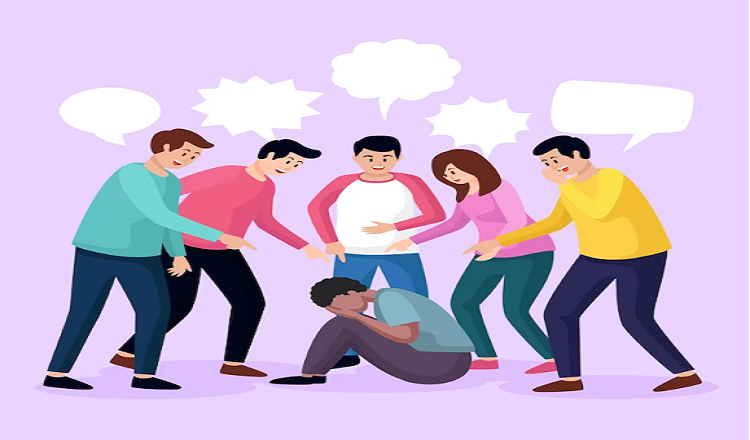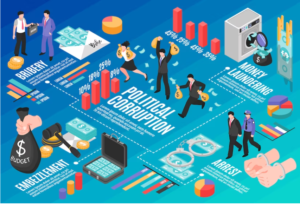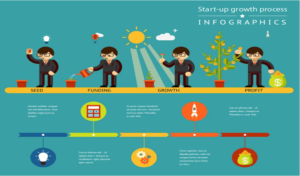Examining the effects of trauma and social inequality on criminal behavior

Trauma and social injustice are two important problems that affect a lot of people in the United States. Unfortunately, they are also big reasons why people do bad things. Traumatic events, like abuse or neglect, can cause people to do illegal things. Social inequality, like poverty and discrimination, can make it hard for people to get the resources and opportunities they need, making them desperate and more likely to do illegal things.
In this piece, we’ll look at how trauma and social inequality affect crime in the United States. We will look at how these problems are related to each other and how they can lead to a circle of crime. We will also talk about how trauma-informed care and social policies can help deal with these problems and stop violent behaviour.
The National Institute of Justice says that stress and social inequality affect certain groups, like minorities and people living in poverty, more than others. Studies have shown, for example, that people who had bad experiences as children are more likely to do bad things as adults, and that people who live in poverty are more likely to have bad experiences and do bad things. These numbers show how important it is to deal with the complicated and interconnected problems of trauma and social inequality if we want to lower crime in the United States.
Trauma and committing crimes
Trauma is a broad term for a person’s emotional reaction to something upsetting, like being abused physically or sexually, being ignored, being in a natural disaster, or going to war. It can affect a person’s mental health and behaviour in ways that last for a long time. There are different kinds of trauma, such as acute trauma, which is a one-time event like a car accident, and chronic trauma, which is abuse or neglect that goes on for a long time.
There are many ways that trauma can lead to bad behaviour. For example, people who have been through a traumatic event may turn to crime as a way to cope or get even. Trauma can also lead to a number of mental health problems, like anxiety, sadness, and post-traumatic stress disorder (PTSD), all of which can make people more likely to commit crimes. Also, stress can affect a person’s ability to make decisions and control their impulses, making them more likely to do dangerous or illegal things.
In the United States, trauma has been found to be a big cause of criminal behaviour, especially among certain groups, like people who are in the criminal justice system. Studies have shown, for example, that a large number of people in prison have been through trauma, and that childhood trauma is often a factor in people who commit violent crimes. To lessen criminal behaviour and improve mental health and well-being, it is important to deal with the causes of trauma and give effective trauma-informed care.
Unfairness in society and bad behaviour
Social inequality is when people and groups in society don’t have the same amount of resources, chances, or power. It can come in many ways, such as racial inequality, gender inequality, educational inequality, and economic inequality.
Inequality in society can lead to crime in a number of ways. For example, people who are treated unfairly by society may turn to crime to make a living or get access to resources they would not have otherwise. Also, social injustice can make people feel hopeless, angry, and frustrated, which can lead to behaviour that is illegal. Also, discriminatory policies and practises can make social imbalance worse, which makes criminal behaviour more likely.
In the United States, social imbalance has been found to be a major cause of crime, especially among marginalised and minority groups. For example, studies have shown that poverty and not having access to schooling and jobs can make people more likely to do bad things. Also, racism and discrimination that is built into the criminal justice system can keep social injustice going and cause some groups to be overrepresented in the criminal justice system. Getting rid of social inequality is important to reducing criminal behaviour and making society more fair and just.
Crime is linked to both trauma and social injustice.
Trauma and social injustice can make people do bad things over and over again. People who have been through trauma may also face social injustice. This can make the effects of trauma worse and make it more likely that they will do something wrong. For example, people who have been through trauma may not have access to mental health services or other tools that could help them deal with the trauma. This could be because they are poor or have been treated unfairly. This can make people feel helpless and lost, which makes them more likely to turn to crime as a way to cope or get money.
When grief and social inequality come together in the United States, they have different effects on criminal behaviour. Studies have shown, for example, that people who have been through stress are more likely to experience social inequality, like being poor or homeless, which can make people more likely to do bad things. Also, some groups, like minorities and people living in poverty, are more likely to experience both grief and social inequality, which makes them more likely to act criminally. To reduce criminal behaviour and improve mental health and well-being, it’s important to deal with how stress and social inequality affect each other.
What trauma-informed care means for the criminal justice system
stress-informed care is a way of giving health care that takes into account how stress affects people and how to help them. Its guiding ideas are safety, trustworthiness, choice, working together, and giving people power. Trauma-informed care can help avoid criminal behaviour in the US criminal justice system by addressing the root causes of trauma and promoting mental health and well-being. By giving people in the criminal justice system care that takes trauma into account, they can get the help and tools they need to deal with trauma and avoid getting into trouble again.
Trauma-informed care in the US criminal justice system includes teaching law enforcement and corrections staff about trauma and how it affects people, giving trauma-focused therapy to people who are in jail, and using trauma-informed policies and practises in courtrooms and prisons. The goal of these efforts is to reduce the number of people who have been traumatised and stop them from becoming criminals in the future. This will lead to a more fair and just society as a whole.
The part that social programmes play in dealing with trauma and social problems
Inequality
When it comes to trauma and social inequality in the US, social programmes are very important. Social policies can help stop illegal behaviour by making sure people have access to resources, addressing systemic inequalities, and helping people who have been hurt. For example, policies that make housing, schooling, and health care more affordable can help with social inequality and make crime less likely. Also, policies that offer mental health support and care that takes trauma into account can help people who have been through trauma deal with their situations and avoid becoming criminals in the future. Systemic gaps, like those based on race and gender, can also be fixed by social policies, which can help bring about fairness and justice. In the end, social policies are important for making a society that is more fair and just, where problems like trauma and social injustice are dealt with and criminal behaviour is stopped.
Conclusion
In the end, this piece looked at how trauma and social inequality affect crime in the United States. We’ve talked about how trauma and social injustice can cause a cycle of criminal behaviour. We’ve also talked about how important it is to deal with both of these things to improve mental health and reduce criminal behaviour. We have also looked at how trauma-informed care and social policies can help deal with trauma and social inequality, as well as stop people from getting into trouble.
It is important to know how stress and social inequality affect criminal behaviour in the United States. By addressing the reasons why people do bad things, we can create a more fair and just society where people have access to the resources and help they need to deal with trauma and avoid doing bad things in the future. To do this, we need to keep working to spread trauma-informed care and put in place social laws that support fairness and justice.
As a result, we want more study to be done on how trauma, social inequality, and criminal behaviour all affect each other, as well as the development of effective ways to deal with these things. We can make a more fair and just society where people can thrive and reach their full potential if we continue to put a high priority on learning how trauma and social inequality affect criminal behaviour.
Read More You May Like:








